 ANGELUS TODAY
ANGELUS TODAY
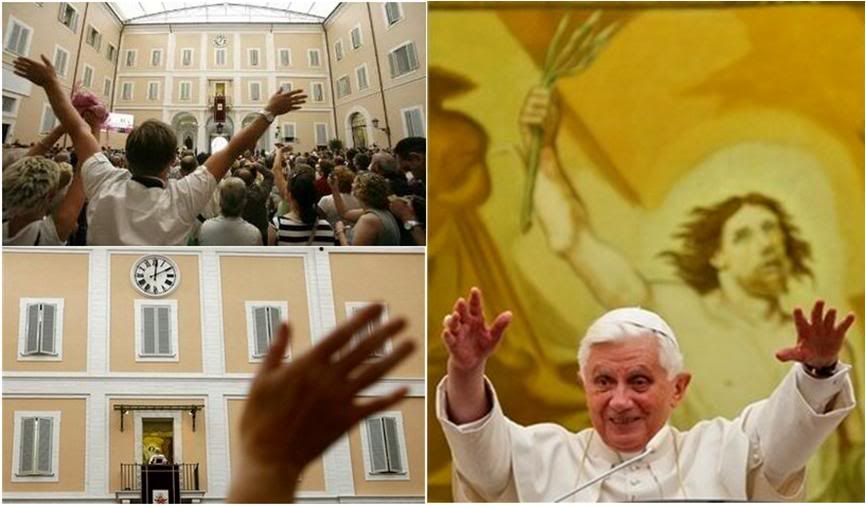
At the noontime Angelus which Pope Benedict XVI led today from the inner courtyard of the Apostolic Palace in Castel Gandolfo, he spoke on the Gospel text for the 24th Sunday in ordinary time. Here is how he summarized it in English:
In the Gospel this Sunday, Jesus puts a question to his disciples: Who do you say I am? On behalf of the others, it is Peter who answers: You are the Christ.
Throughout history, it has been the task of Peter’s successors to continue to make that proclamation of faith in Jesus Christ. And all of us are called to join Peter as we resolve to place the Lord at the centre of our lives.
I pray that all of you may grow in your faith and love for the Lord and I invoke his blessings upon you and upon your loved ones at home.
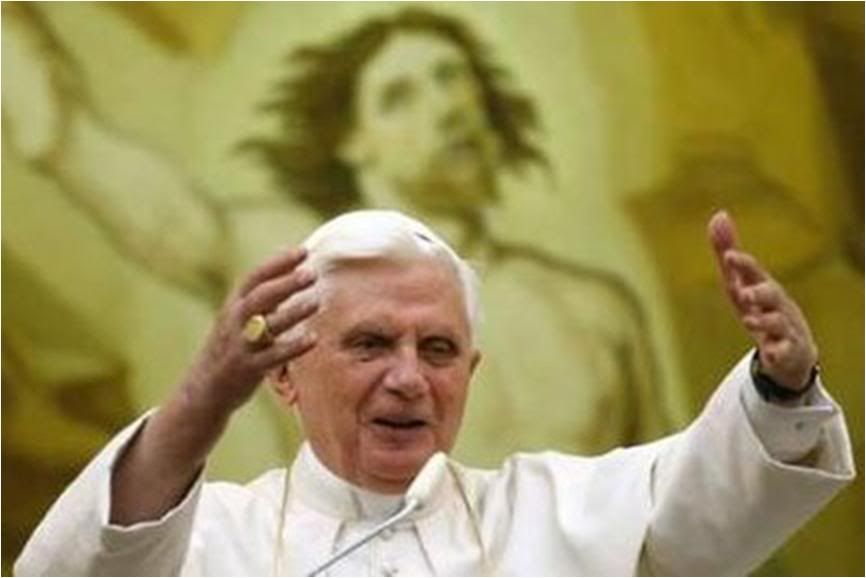
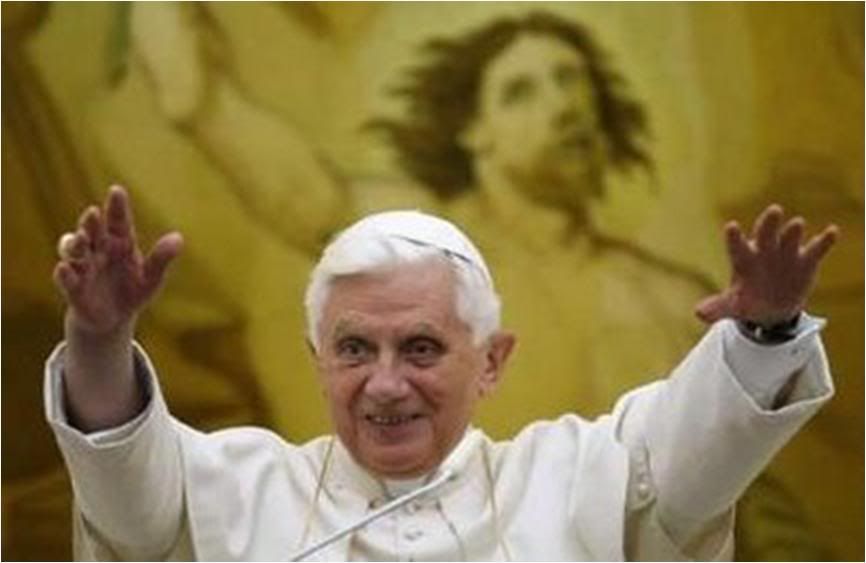
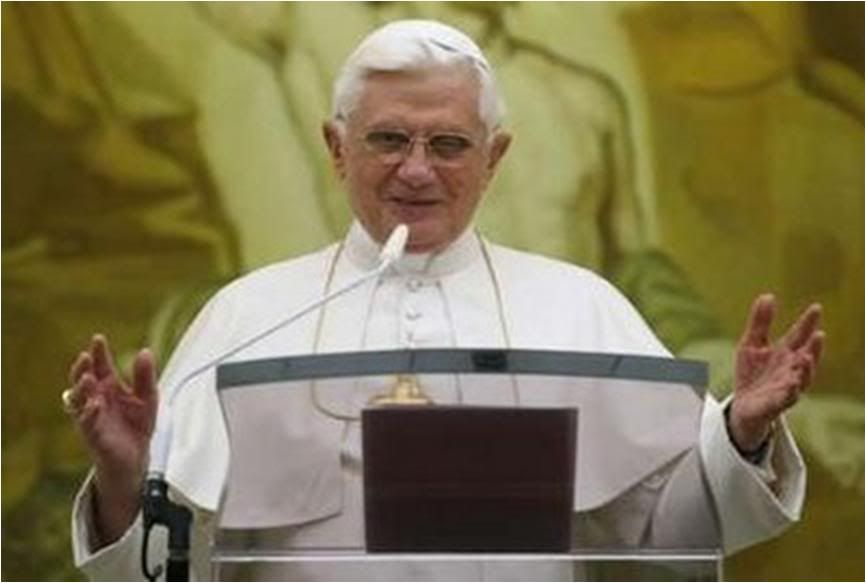 Here is a translation of the Holy Father's words at the Angelus today:
Here is a translation of the Holy Father's words at the Angelus today:
Dear brothers and sisters:
On this Sunday, the 24th in ordinary time, the Word of God presents us with two crucial questions that I would summarize this way:
"Who do you think Jesus of Nazareth is?" and "Does your faith translate into works or not?"
We find the first question in today's Gospel, where Jesus asks his disciples: "Who do you say that I am?" (Mk 8,29). Peter's response is clear and immediate: "You are the Christ", namely, the Messiah, God's anointed one, sent to save his people.
Thus Peter and the other apostles, unlike most of the people around them, believed not only that Jesus was a great teacher or a prophet, but far more than that. They had faith: they believed that God was present and worked in him.
Shortly after this profession of faith, however, when Jesus announced for the first time that he had to suffer and be killed, the same Peter objected to the very thought of suffering and death.
Jesus then had to reproach him forcefully, to make him understand that it was not enough to believe that he was God, but that, urged on by love, he must follow him on the same path, that of the cross (cfr Mk 8,31-33).
Jesus did not come to teach us philosophy, but to show us a way - the way which leads to life. This way is love, which is an expression of true faith.
If one loves his neighbor with a pure and generous heart, it means he really knows God. But if one says that he has faith but does not love his brothers, he is not a true believer. God does not dwell in him.
St. James affirms this clearly in the Second Reading for today's Mass:
"Faith of itself, if it does not have works, is dead" (Jms 2,17).
In this regard, I wish to cite St. John Chrysostom, one of the great Fathers of the Church, whom the liturgical calendar invites us to remember today.
Commenting on the aforementioned verse from the Letter of St. James, he wrote: "One may have correct faith in the Father and the Son as well as the Holy Spirit, but if one does not live a correct life, his faith will not serve to save him. Thus when you read in the Gospel: 'Now this is eternal life, that they should know you, the only true God' (Jn 17,3), do not think that this line suffices to save us: we also need the purest life and behavior" (cit. in J.A. Cramer, Catenae graecorum Patrum in N.T., vol. VIII: In Epist. Cath. et Apoc., Oxford 1844).
Dear friends, tomorrow we celebrate the Exaltation of the Holy Cross, and the following day, the Feast of Our Lady of Sorrows. The Virgin Mary, who believed in the Word of the Lord, did not lose her faith in God when she saw her Son rejected, abused and crucified. Rather, she remained close to Jesus, suffering and praying, to the very end. And she saw the radiant dawn of the Resurrection.
Let us learn from her to bear witness to our faith with a life of humble service, ready to pay in person for remaining faithful to the Gospel of love and truth, certain that we lose nothing by doing so.
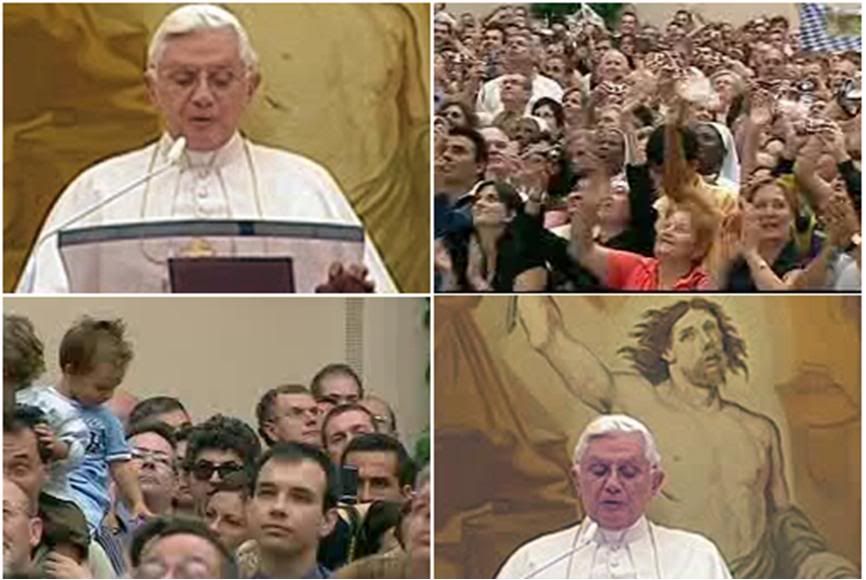
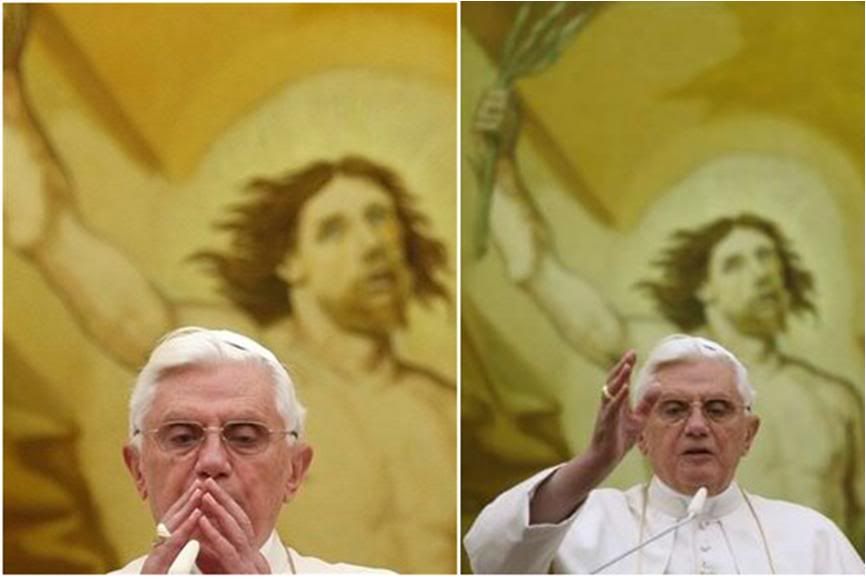
[Modificato da TERESA BENEDETTA 13/09/2009 16:34]